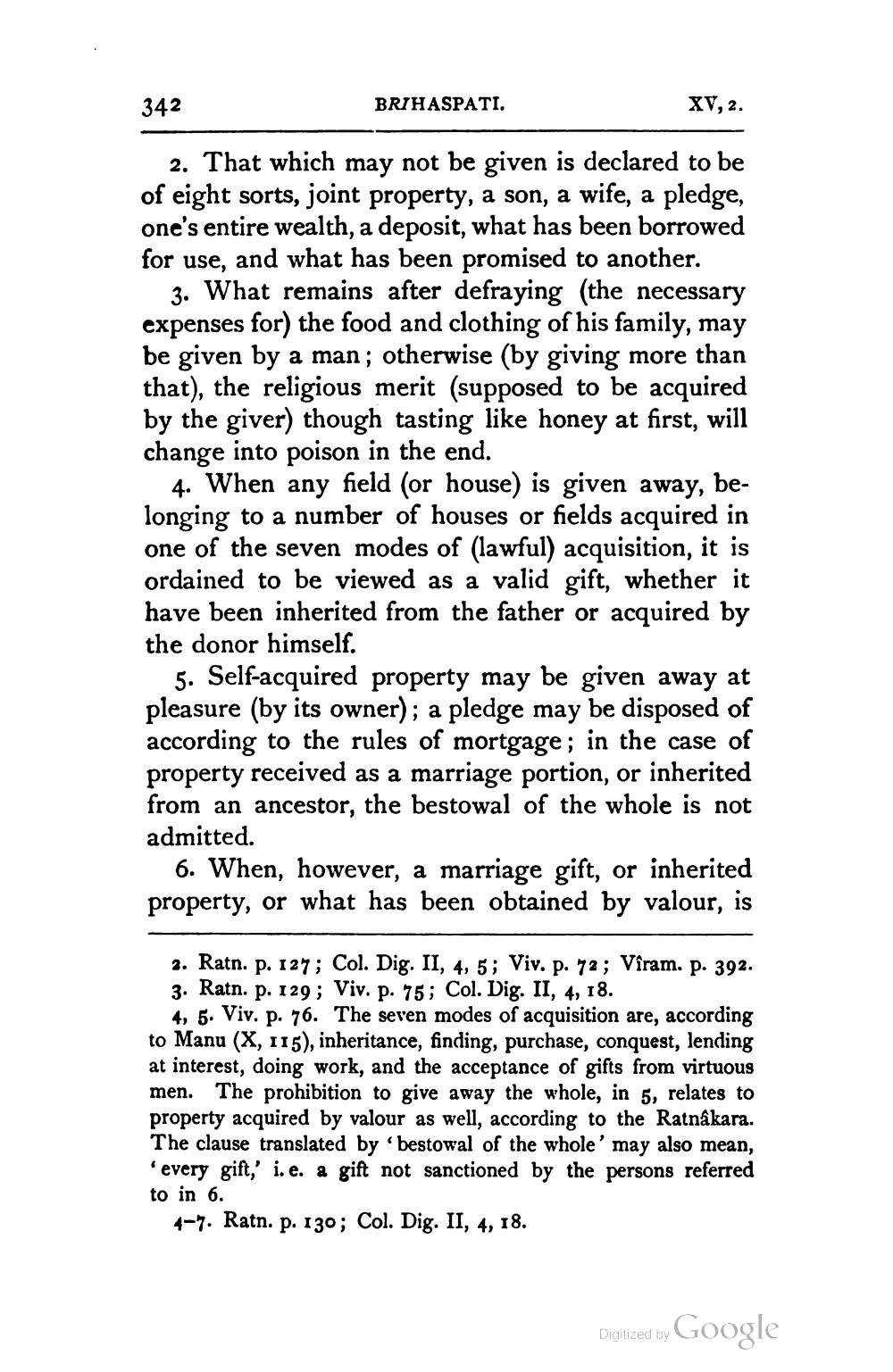________________
342
BRIHASPATI.
XV, 2.
2. That which may not be given is declared to be of eight sorts, joint property, a son, a wife, a pledge, one's entire wealth, a deposit, what has been borrowed for use, and what has been promised to another.
3. What remains after defraying the necessary expenses for) the food and clothing of his family, may be given by a man; otherwise (by giving more than that), the religious merit (supposed to be acquired by the giver) though tasting like honey at first, will change into poison in the end.
4. When any field (or house) is given away, belonging to a number of houses or fields acquired in one of the seven modes of (lawful) acquisition, it is ordained to be viewed as a valid gift, whether it have been inherited from the father or acquired by the donor himself.
5. Self-acquired property may be given away at pleasure (by its owner); a pledge may be disposed of according to the rules of mortgage; in the case of property received as a marriage portion, or inherited from an ancestor, the bestowal of the whole is not admitted.
6. When, however, a marriage gift, or inherited property, or what has been obtained by valour, is
2. Ratn. p. 127; Col. Dig. II, 4, 5; Viv. p. 72; Viram. p. 392. 3. Ratn. p. 129; Viv. p. 75; Col. Dig. II, 4, 18.
4, 5. Viv. p. 76. The seven modes of acquisition are, according to Manu (X, 115), inheritance, finding, purchase, conquest, lending at interest, doing work, and the acceptance of gifts from virtuous men. The prohibition to give away the whole, in 5, relates to property acquired by valour as well, according to the Ratnakara. The clause translated by 'bestowal of the whole' may also mean, 'every gift,' i.e. a gift not sanctioned by the persons referred to in 6.
4-7. Ratn. p. 130; Col. Dig. II, 4, 18.
Digitized by Google




